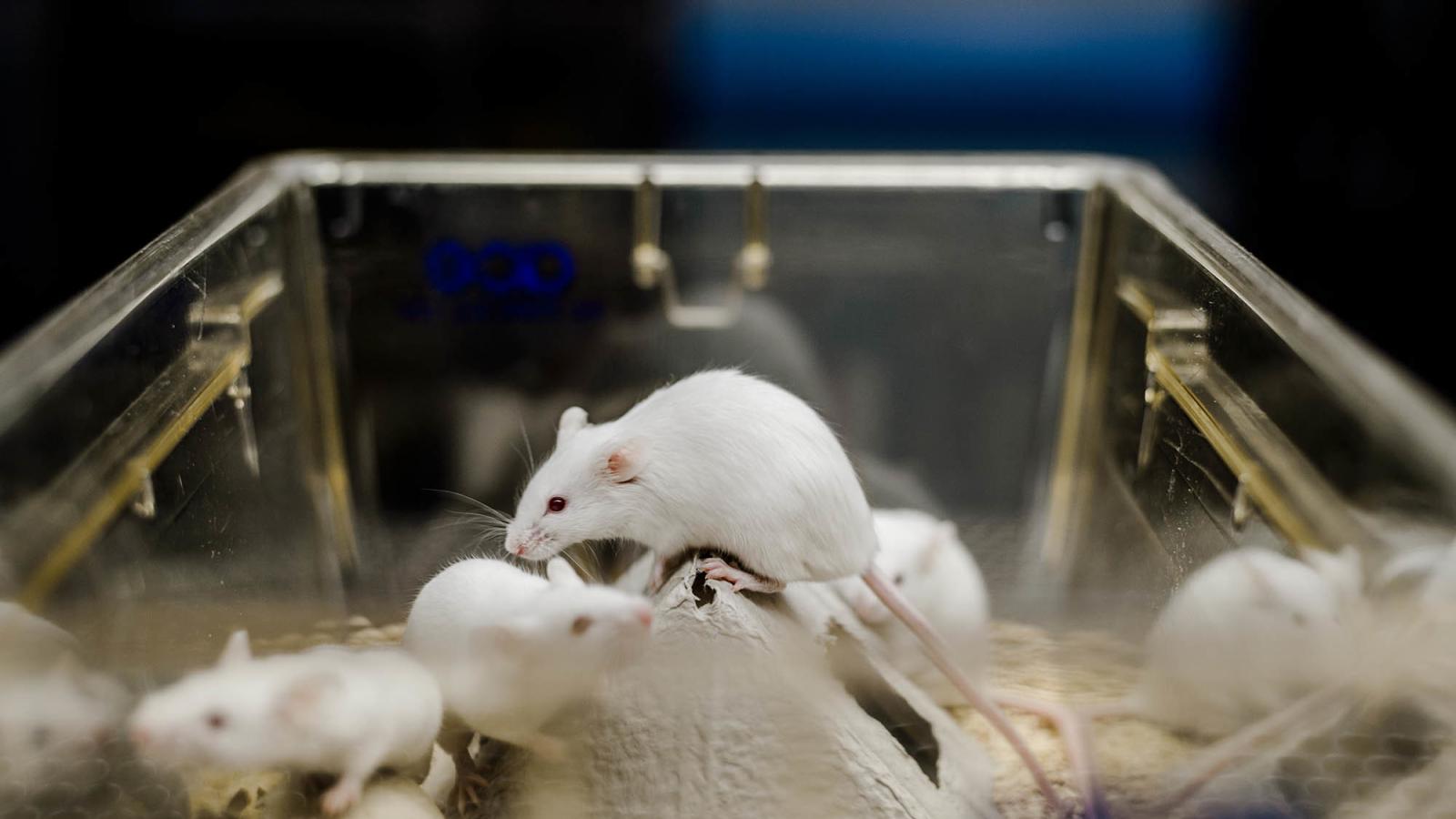Major pathway that leads to brain cell death is blocked
A team of MRC scientists, led by newly named UK DRI Centre Director Giovanna Mallucci, a few years ago identified a major pathway that leads to brain cell death in mice. The team has now found two drugs which block the pathway and prevent neurodegeneration. The drugs caused minimal side effects in the mice and one is already licensed for use in humans, so is ready for clinical trials.
Misfolded proteins build up in the brain in several neurodegenerative diseases and are a major factor in dementias such as Alzheimer’s and Parkinson’s as well as prion diseases. Previously, the team found that the accumulation of misfolded proteins in mice with prion disease over-activates a natural defence mechanism, ‘switching off’ the vital production of new proteins in brain cells. They then found switching protein production back on with an experimental drug halted neurodegeneration. However, the drug tested was toxic to the pancreas and not suitable for testing in humans.
Two promising drugs
In the latest study, published today in Brain, the team tested 1040 compounds from the National Institute for Neurological Disorders and Stroke, first in worms (C.elegans) which have a functioning nervous system and are a good experimental model for screening drugs to be used on the nervous system and then in mammalian cells. This revealed a number of suitable candidate compounds that could then be tested in mouse models of prion disease and a form of familial tauopathy (frontotemporal dementia - FTD), both of which had been protected by the experimental - but toxic - compounds in the team’s previous studies.
The researchers identified two drugs that restored protein production rates in mice – trazodone hydrochloride, a licensed antidepressant, and dibenzoylmethane (DBM), a compound being trialled as an anti-cancer drug. Both drugs prevented the emergence of signs of brain cell damage in most of the prion-diseased mice and restored memory in the FTD mice. In both mouse models, the drugs reduced brain shrinkage which is a feature of neurodegenerative disease.
repurposed drugs show promise to prevent neurodegeneration
We could know in 2-3 years whether this approach can slow down disease progression, which would be a very exciting first step in treating these disorders.Professor Giovanna MallucciCentre Director at UK DRI at Cambridge
Professor Giovanna Mallucci, who led the team from the Medical Research Council’s (MRC) Toxicology Unit in Leicester and the University of Cambridge, was today announced as one of the five centre directors of the UK Dementia Research Institute. She said:
“We know that trazodone is safe to use in humans, so a clinical trial is now possible to test whether the protective effects of the drug we see on brain cells in mice with neurodegeneration also applies to people in the early stages of Alzheimer’s disease and other dementias. We could know in 2-3 years whether this approach can slow down disease progression, which would be a very exciting first step in treating these disorders.
“Interestingly, Trazodone has been used to treat the symptoms of patients in later stages of dementia, so we know it is safe for this group. We now need to find out whether giving the drug to patients at an early stage could help arrest or slow down the disease through its effects on this pathway.”
The research was funded by the MRC and Professor Mallucci was also funded by a grant from Alzheimer’s Society and Alzheimer’s Drug Discovery Foundation.
Dr Rob Buckle, Chief Science Officer at the MRC, said:
“This study builds on previous work by this team and is a great example of how really innovative discovery science can quite quickly translate into the possibility of real drugs to treat disease.
“The two drugs identified remain experimental but they were shown to protect the mice even when given after the processes underlying neurodegeneration had become established. We currently have no way of treating these diseases so the prospect of finding drugs that can slow or stop them from progressing is extremely exciting – even more so when this is based on drugs that have already undergone expensive and time consuming testing in unrelated studies to establish that they are likely to be safe to use in humans.”
Dr Doug Brown, Director of Research and Development at the Alzheimer's Society, said:
“We’re excited by the potential of these findings. They show that a treatment approach originally discovered in mice with prion disease might also work to prevent the death of brain cells in some forms of dementia. This research is at a very early stage and has not yet been tested in people - but as one of the drugs is already available as a treatment for depression, the time taken to get from the lab to the pharmacy could be dramatically reduced.
“The drug blocks a natural defence mechanism in cells which is overactive in the brains of people with frontotemporal dementia, Alzheimer’s disease and Parkinson’s, so has the potential to work for several conditions. So far it has only been tested in mice with frontotemporal dementia but Alzheimer’s Society is now funding the researchers to test it in models of Alzheimer’s too.”
